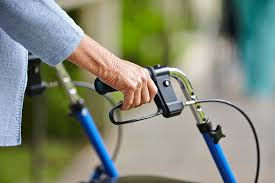Maintaining dignity with a disability is a key issue for people with disabilities and limited mobility. It involves creating a sense of worth and belonging in life with inclusivity in everyday activities. It includes having choices and being involved in decisions that affect their lives. It is also related to social justice, as equal opportunities for people with disabilities are important for their sense of self-worth and for society as a whole. To maintain dignity and independence, consider the benefits of Walking Aids for those with limited mobility. Find out more at www.abilitysuperstore.com/collections/walking-aids
In addition to social justice, dignity is a fundamental right for people with a disability. Human dignity means being treated with respect, courtesy, and honour – exactly how any other person would want to be treated. This standard was established by the 1948 Universal Declaration of Human Rights. This document has been translated into more than 500 languages.
According to the report, maintaining dignity is a fundamental part of the quality of life for people with disabilities. People with disabilities face numerous obstacles in their daily lives that make life more difficult. Without support, they may feel devalued, embarrassed, or humiliated. To maintain dignity, people should feel good about themselves and behave in a way that reflects their worth and self-respect.
Maintaining dignity with a disability requires a careful assessment of each person’s lifestyle, preferences, strengths, and weaknesses. It also requires that caregivers know the person well enough to provide support and care in a way that promotes dignity and independence.

